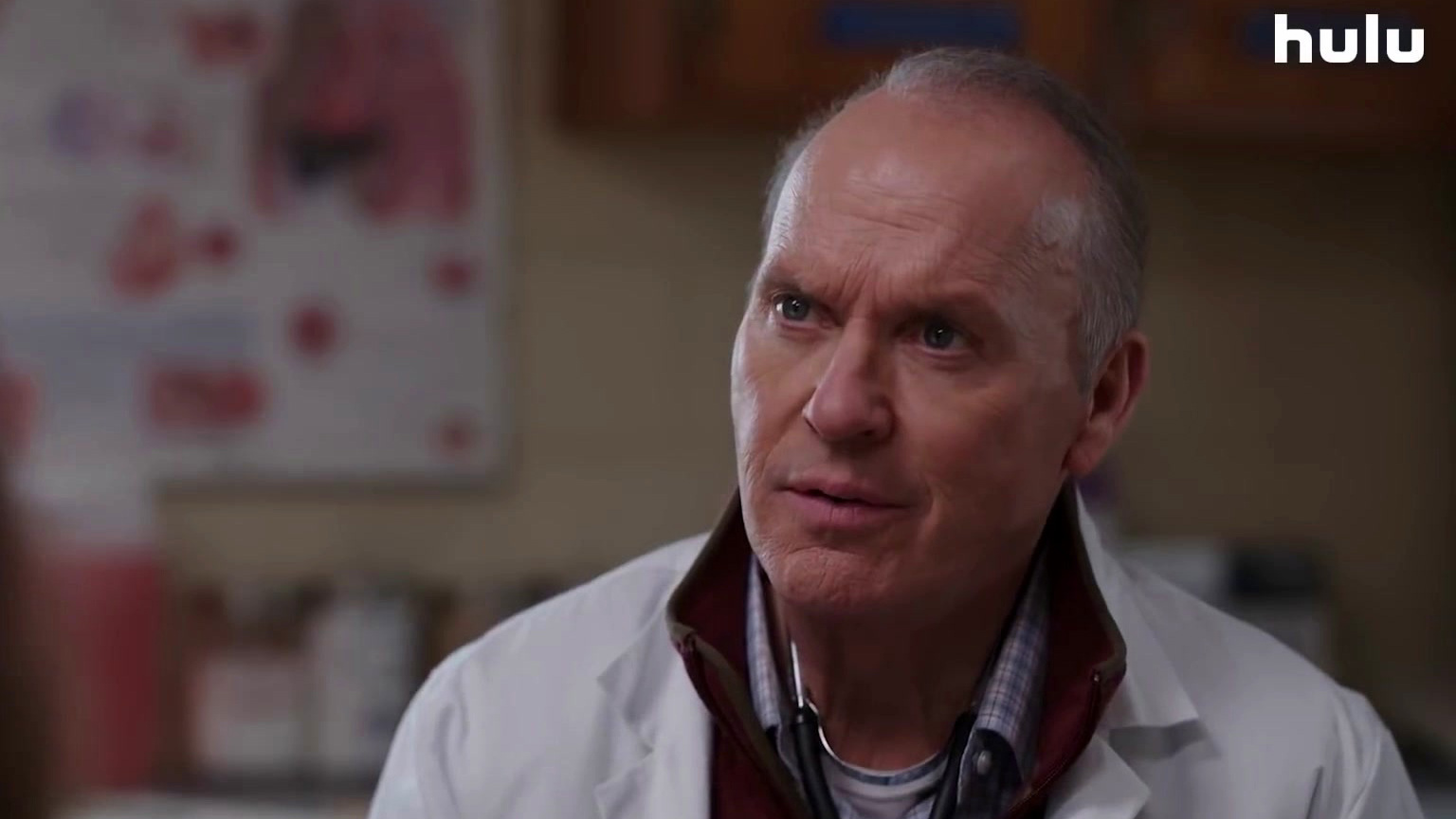‘Dopesick’ on Hulu explores the people and mechanisms behind an addiction crisis sparked by pharmaceutical drugs. The miniseries follows the introduction and rapid rise of a painkiller and how its manufacturers blatantly lie about its addictive effects to boost sales. Confidential discussions amongst the heads of the company at the center of the epidemic also show how they strategize to spread the drug all across the world.
The image painted by the narrative is bleak and depicts how corporate profits are repeatedly given more importance than human lives. So is what we see in ‘Dopesick’ based on reality, and if so, just how accurate is the depiction? We decided to find out.
Is Dopesick Based on a True Story?
‘Dopesick’ is partially based on a true story. The miniseries is based on the 2018 nonfiction book ‘Dopesick: Dealers, Doctors and the Drug Company that Addicted America’ by Beth Macy and introduces fictional characters to dramatize the real-life situation that the book describes. It centers around the American opioid addiction crisis and presents the story from the perspectives of doctors, pharmaceutical drug sales associates, law enforcement officials, and a dramatized version of the Sackler family.

The book’s author, Beth Macy, spent over two decades as a reporter for The Roanoke Times in Virginia and then turned her attention to book writing. Her book that inspired the miniseries came about when she learned of rising heroin addiction in an upper-middle-class suburb near her home. She also noticed a rise in drug-related crimes, which pushed her to investigate the issue and write a book about it. At a book reading, Macy mentioned how the mother of a 19-year old who died of an overdose wondered how her son had ended up dead in a bathroom. Through her book, the reporter-turned-author claimed to have set out to answer the grieving mother’s query.
Macy also co-wrote a few of the episodes but said that the miniseries largely follows the vision of show creator Danny Strong. However, the themes depicted are the same as the ones in the book. “It’s about corruption. How this terrible injustice was promulgated on the most marginalized Americans and how this company (Purdue Pharma) got away with doing that,” said Macy on the subject, according to the Richmond Times-Dispatch.
Speaking to The Guardian, Strong said, “When people see the rampant criminal behavior [of this company] which is so egregious, so shocking, they will understand how this happened and then simultaneously that the institutions of government that are supposed to protect the public from a flagrantly criminal company like this failed. And they didn’t fail by accident.” In fact, the Sacklers, who owned and ran Purdue Pharma, managed to dodge “full legal or financial accountability,” when a federal bankruptcy judge approved a plan that would provide the family with “immunity from future lawsuits,” as per the BBC.
In the wake of this decision, Strong claimed — in the same interview with The Guardian — that with ‘Dopesick,’ he wanted to “give Purdue and the Sacklers the trial that they never got.” It was when the creator learned about the DEA investigating the family that he felt like this premise would make for quite a dramatic show. “If you intercut that with the tragedy of the drug and what it does to people, I thought this could be a really multidimensional piece that not only could be important and tell a story that people need to know, but also do it in a way that’s actually quite compelling and exciting and hopefully a thrilling piece of storytelling,” he said.
One of the show’s central fictional characters is a small-town doctor who begins to prescribe the painkillers in question to his patients before discovering their dangerously addictive effects. The character is essayed by Michael Keaton and is based on various doctors and individuals that Macy and Strong spoke to while researching the book and subsequent series. Keaton admitted that he was sometimes surprised by the extent of manipulation and lies depicted on the show. However, Strong would then point him towards factual information that would prove just how outrageous the situation actually was.
‘Dopesick’ depicts the American opioid crisis from multiple perspectives and follows the stories of the people responsible, the victims, and those fighting the epidemic. Its characters, though largely fictional, are based on extensive research and the experiences of real people. The fact that it draws from a nonfiction book by a journalist further bolsters the authenticity of the miniseries.
Read More: Where Was Dopesick Filmed?


You must be logged in to post a comment.